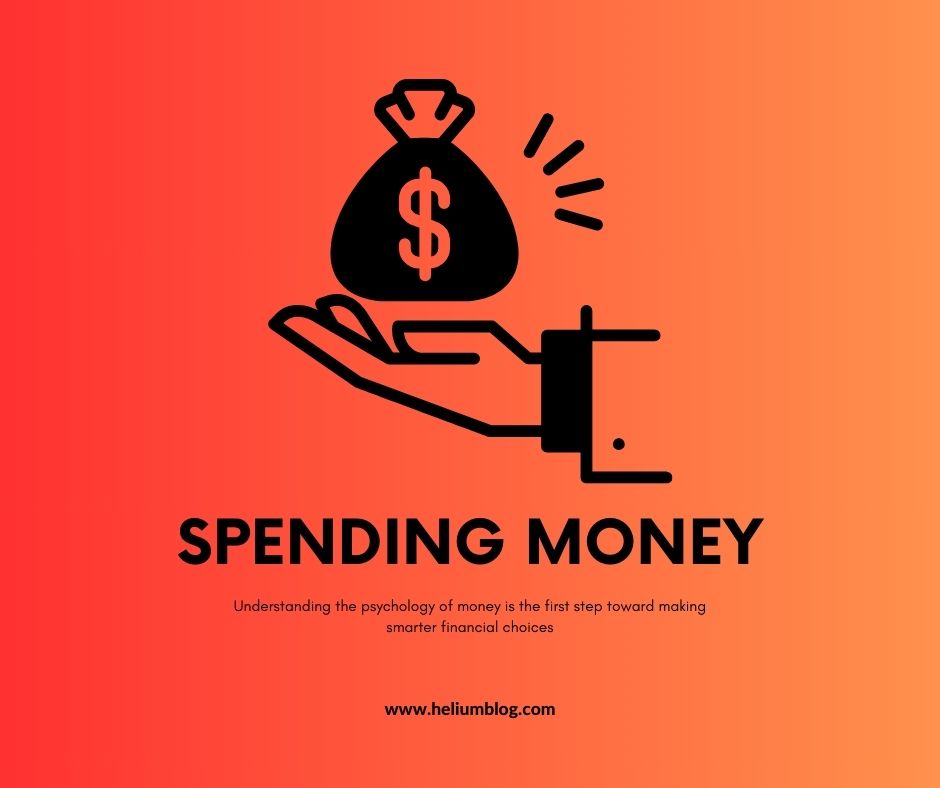
The Psychology of Money: Why We Spend, Save, and Invest the Way We Do
Introduction
Money is not only figures on a computer screen or pieces of paper in your pocket; it is intrinsically tied to human feelings, actions, and psychology. The way we make money, spend money, save money, and invest money is usually based on our backgrounds, experiences, and even societal expectations. A knowledge of the psychology of money can enable us to make better financial choices, steer clear of pitfalls, and accumulate wealth better.
In this article, we’ll explore the psychological factors that drive financial decisions, the cognitive biases that impact our money habits, and practical ways to develop a healthier relationship with money.
The Emotional Connection to Money
Money is not just a tool for transactions; it carries emotional weight. It can symbolize security, freedom, power, or even love. Here are some key emotional influences on financial behavior:
1. Fear and Anxiety
Most individuals have anxiety about money, particularly those who have encountered financial hardship before. The anxiety can manifest as hoarding cash, staying away from investments, or taking too cautious a stance with money.
2. Instant Gratification vs. Delayed Reward
Our brains are designed to look for immediate gratification, and that’s why impulse buying is so prevalent. Being able to wait—selecting long-term gain over short-term enjoyment—is a financial success skill that is absolutely essential.
3. Social Comparison and Status
Individuals tend to measure their economic success in terms of how they stack up against others. This **social comparison theory** makes most individuals overspend to keep up with a certain standard of living, even if it means sacrificing financial security.
Cognitive Biases That Influence Financial Choices
Psychologists and economists have described numerous cognitive biases that influence the way we think about and deal with money. Here are some of the most influential ones:
1. Loss Aversion
Individuals prefer to avoid losses more than they desire gains. That is why investors tend to keep losing shares for too long or refuse to take essential financial risks.
2. Anchoring Bias
We have a tendency to overlean on the first information we see (the “anchor”). If a product’s initial price is $500 and it is sold for $300, for instance, we would think that this is a real bargain—even when $300 still sounds too pricey.
3. The Diderot Effect
This happens when one buy results in another. For instance, the purchase of a new phone can result in the purchase of costly accessories, leading to wasteful expenditure.
4. The Sunk Cost Fallacy
Individuals have a hard time abandoning previous monetary choices, even if they no longer make economic sense. This is why individuals keep investing in unsuccessful ventures or keeping depreciating assets.
Why We Spend the Way We Do
Spending is influenced by a combination of psychological, social, and environmental determinants. Let’s take a closer look at why we tend to overspend:
1. Emotional Spending
Individuals spend money as a way to deal with stress, unhappiness, or boredom. Retail therapy gives one a temporary high but results in long-term financial tension.
2. Advertising and Consumer Psychology
Marketers know about human psychology and exploit it. Limited-time promotions, glittering discounts, and celebrity endorsements all generate a sense of urgency that makes people spend.
3. Lifestyle Inflation
Whenever income goes up, spending follows suit. People get trapped into inflating their lifestyle rather than investing or saving the additional income.
4. The “I Deserve It” Mentality
After working hard, people often feel they deserve luxury purchases, which can lead to financial instability if not managed properly.
Why Some People Struggle to Save
While saving money is crucial for financial security, many individuals find it difficult. Here’s why:
1. Present Bias
Many people prioritize immediate needs over future benefits, making it difficult to save for long-term goals like retirement.
2. Lack of Financial Education
Schools infrequently include personal finance in the curriculum, which means many grown-ups don’t know how to save properly.
3. The Pain of Saving
Saving money always seems like giving something up. Without a solid goal, spending is too easy instead of setting aside money.
The Psychology of Investing
Investing is half psychology and half strategy. Here’s how human psychology affects investing decisions:
1. Herd Mentality
Humans are prone to herd behavior, buying stocks or investments just because others are doing it. This results in financial bubbles and crashes.
2. Overconfidence Bias
Most investors become overconfident that they can forecast market trends, resulting in excessive risk-taking.
3. Recency Bias
Investors make decisions based on what has just happened instead of overall trends, leading to panic selling when markets decline.
How to Build a Healthier Relationship with Money
The key to better money management is to enhance your financial mindset. Here’s how:
1. Build a Budget with Purpose
Rather than viewing a budget as limiting, consider it a means of financial independence. Fund what really counts—be it travel, education, or retirement.
2. Automate Savings and Investments
Automating transfers makes saving automatic and builds wealth over time through consistent effort.
3. Mindful Spending
Prior to a purchase, ask yourself:
Do I need this? Does this support my financial goals?
4. Change from Scarcity to Abundance Mindset
Rather than dwelling on what you do not have, acknowledge the available financial opportunities. Learning about money can give you the power to make more informed choices.
5. Get Professional Help
If personal finance seems daunting, seeking advice from a financial advisor can clear up confusion and assist in the development of a strategic financial plan.
The psychology of money is the key to making better financial decisions. By being aware of emotional triggers, sidestepping cognitive biases, and cultivating good financial habits, you can gain control over your financial destiny.
Whether you’re trying to escape impulsive spending, grow your savings, or make smart investment choices, paying attention to your money relationship can bring you financial success. Begin today by making incremental yet significant changes to how you think about and manage your money!